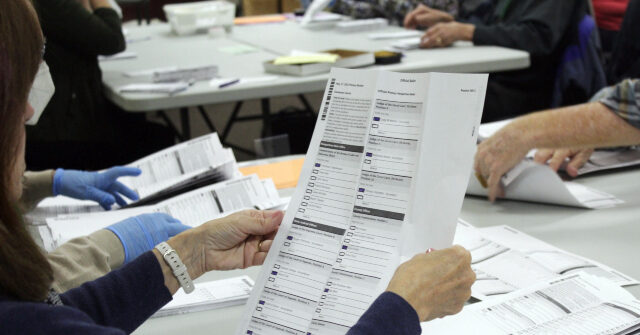Top News
Minnesota Court Rejects Lawsuit to Boot Trump from Primary Ballot–Danger Still Lurks

A state court dismissed a lawsuit to kick Donald Trump off the 2024 primary ballot in Minnesota but left open the possibility the courts could boot Trump off the general election ballot in November.
The case centers around Section 3 of the Fourteenth Amendment in a provision known as the “Insurrection Clause.” Plaintiffs argue President Trump’s actions on January 6, 2021 amount to an insurrection and disqualify him from appearing on the ballot.
The court order Wednesday says no state law exists to prohibit a political party from placing a candidate on the ballot ineligible to run. However, the court leaves open the opportunity for plaintiffs to refile before the general election if Trump indeed is the Republican nominee, as expected.
Trump continues to defy expectations and is the far-and-away favorite to win the nomination despite lawsuits around the nation filed in liberal enclaves and even by the Biden Department of Justice.
Similar lawsuits have been filed in other states, including Colorado, where a state trial judge heard arguments last week.
Breitbart News reported last week that the justices appeared skeptical of the Minnesota lawsuit.
The Minnesota decision might be appealed. The U.S. Supreme Court has never ruled on this provision of the Fourteenth Amendment, and speculation on what the court might do runs the gamut.
Steven Cheung, a Trump campaign spokesman, said:
Today’s decision in Minnesota, like New Hampshire before it, is further validation of the Trump Campaign’s consistent argument that the 14th Amendment ballot challenges are nothing more than strategic, un-Constitutional attempts to interfere with the election by desperate Democrats who see the writing on the wall: President Trump is dominating the polls and has never been in a stronger position to end the failed Biden presidency next November.
He continued:
The ballot challenges (which we call the Democrats’ STEAL Curtain) are universally funded by left-wing activist groups masquerading as ‘non-partisan watchdogs.’ These groups are funded by some of the biggest financiers of the Democrat Party, including the likes of George Soros. They are sham groups doing the bidding of the Biden campaign and their ballot challenges should be summarily thrown out wherever they next arise.
Trump’s attorneys have argued that the insurrection clause does not apply to presidents. The text of the amendment references Senators, Representatives, and Presidential electors, as well as other federal officials, but not the presidents.
The clause reads:
No person shall be a Senator or Representative in Congress, or elector of President and Vice-President, or hold any office, civil or military, under the United States, or under any State, who, having previously taken an oath, as a member of Congress, or as an officer of the United States, or as a member of any State legislature, or as an executive or judicial officer of any State, to support the Constitution of the United States, shall have engaged in insurrection or rebellion against the same, or given aid or comfort to the enemies thereof. But Congress may by a vote of two-thirds of each House, remove such disability.
Trump’s legal team also argues that what occurred on January 6, 2001 was not an insurrection and that Trump himself therefore could not have “given aid or comfort” to an insurrection. They also argue that he holds no responsibility for the events, regardless of how they are classified.
Trump has not been charged in a court of law with insurrection. A Democrat House impeached him on two occasions – roughly the court equivalent of an indictment – but the Senate acquitted him.
Chief Justice Natalie Hudson said last week that it seemed that questions of eligibility should be settled in Congress, given its constitutional roles and powers in certifying presidential electors and impeaching presidents.
“[Those powers] seem to suggest there is a fundamental role for Congress to play and not the states because of that,” said Hudson. “It’s that interrelation that I think is troubling, that suggests that this is a national matter for Congress to decide.”
Hudson also expressed concerns with the possibility for “chaos” if multiple states decide differently on if states can determine a presidential candidate’s eligibility, joining other justices in questioning if it was appropriate for states to determine the matter.
She said even if the court had the authority to keep Trump off the ballot, “Should we, is the question that concerns me the most.”
Plaintiffs may have the opportunity to press the matter further before the general election.
The case is Growe v. Simon, Case No. A23-1354, in the Minnesota Supreme Court.
Follow Bradley Jaye on Twitter at @BradleyAJaye.
Read the full article here


















